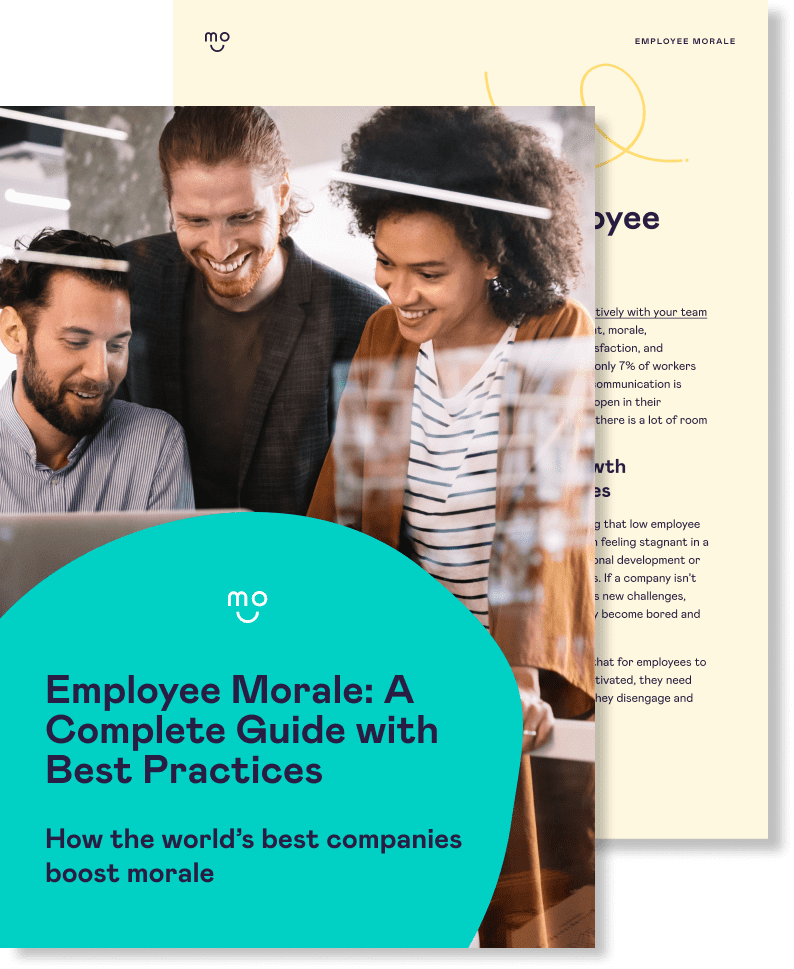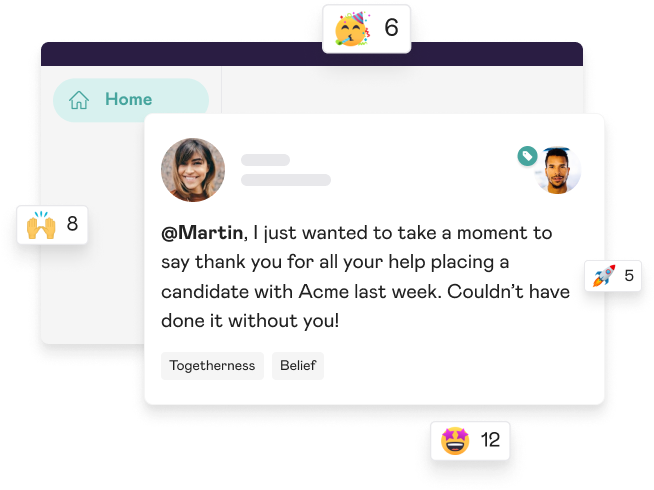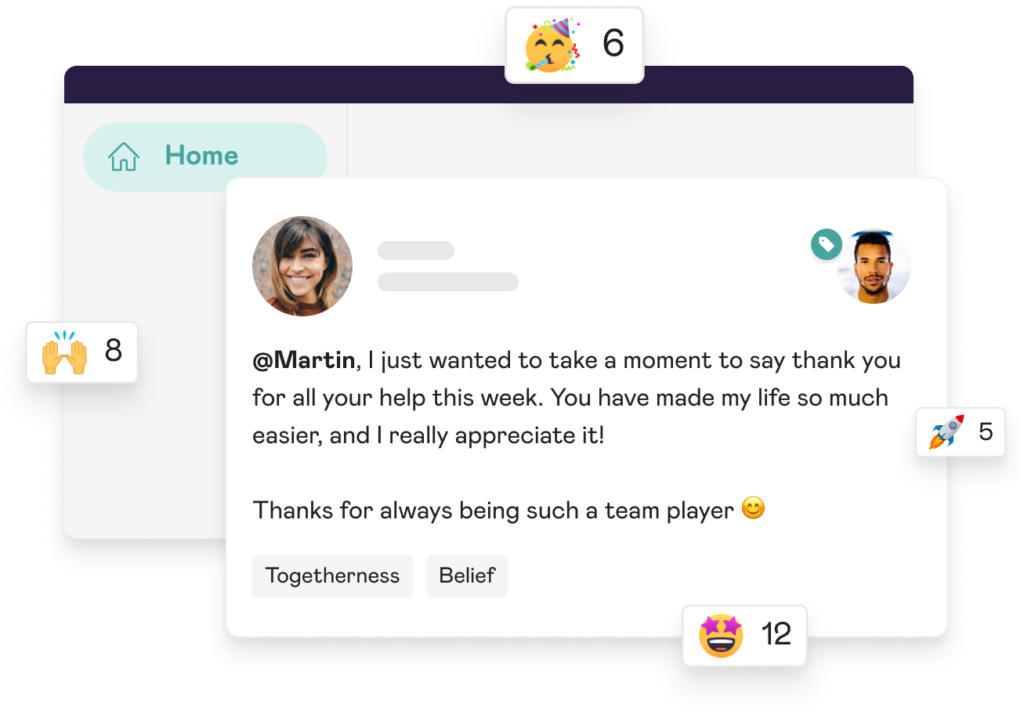Our world is volatile, uncertain, complex and ambiguous – and the pandemic was a testament to that!
Leaders have faced challenges they never knew existed over the last few years, and to succeed, they had to be proactive, adaptable and resilient.
It can be challenging to build a resilient workforce when you don’t have resilient leadership. Thankfully, like any leadership skill, resilience can be taught, learned and honed through practice.
What is resilient leadership?
Resilience is a powerful and essential trait for high-performing leaders.
When we think of resilient leaders, we often think of bold and brave individuals immune to failure, but that isn’t the case.
Resilient leaders can sustain their energy levels under pressure, cope with disruptive changes in the workplace and adapt. They can bounce back from setbacks and overcome major challenges without harming their team. They are comfortable with discomfort while leading their team with empathy, courage and conviction.
Why is resilience in leadership important?
A study found that leaders with high levels of resilience are seen as more effective by their managers, peers and direct reports. Research also shows organisations with resilient leaders don’t just survive – they thrive in the face of change and uncertainty.
Resilience isn’t just about ensuring growth. You can’t develop high-performing teams without resilience in leadership.
High-performing teams are led by resilient leaders who focus on goals, listen and guide their team, provide support and stability, and act as a voice that champions the best interest of their team.
Examples of resilience in the workplace
Before we dive right into the different ways leaders can build resilience, here are a few examples of what resilient leadership looks like at work:
- The team loses a big client. Rather than pointing the finger, the team holds a meeting to discuss what went wrong and what could have gone better. They also use this as a learning experience for new clients going forward.
- The whole team feel comfortable giving and receiving feedback (positive or negative), taking the feedback onboard and not personally, and learning from it.
- The team loses a member, but instead of getting stressed and overwhelming someone with extra work, the position is advertised, and a plan is made to split up the workload until a replacement is found.
What can leaders do to build resilience?
Effective communication
Resilient leadership brings others along on the journey. Employees want to know about changes in their organisation, how they affect them, and the action plan.
If leaders act alone and don’t bother to inform their team about what they’re trying to do, they won’t be very effective leaders. After all, leaders cannot lead if there’s no team behind them.
Effective communication from leaders will ensure others understand the new strategies or directions they’re being asked to take and that the leader maintains the trust required to lead effectively.
Build positive relationships
Leaders must focus on building trust and embracing the differences within their teams. By taking the time to get to know their team and build relationships based on more than just work, leaders will have a stronger, more adaptable and successful team.
Without positive relationships, leaders will struggle to make changes within their team – even drastic changes are possible when the team dynamics and relationships are strong.
Be open to feedback
Becoming a more resilient leader means being open to and asking for feedback. Because resilient leaders have a strong desire to improve their skills and abilities continuously, they take the feedback onboard and make a real effort to improve.
Appreciate your team
When leaders take time to say ‘well done’ or ‘thank you’, it will boost team morale. Don’t sit around waiting on a huge win to praise the team. Instead, give recognition frequently. Employees are more likely to trust their leader that takes the time to appreciate the small wins.

How the World’s Best Companies Boost Employee Morale
A complete guide with best practices from companies including Starbucks, Dropbox, Zappos and more.
Adapt new perspectives
Strategies that worked in the past can continue to deliver results year after year, but eventually, there will come a time when they no longer work. In times of change, new perspectives are essential, and leaders need to be open to learning and implementing new behaviours and skills. It’s critical to stay competitive!
Encourage others
Leaders must empower and prepare others for success. Encouraging others creates a positive work environment where teams accept mistakes and failures and take the time to learn from them. Helping your team embrace failure and move forward helps them develop their problem-solving skills and look for creative solutions. The best leaders are invested in the progression and development of their team, and not threatened by the prospect of them moving up in the organisation or further honing their skills.
Take risks
Resilient leaders are bold enough to take risks and try new things. When times are turbulent and things are changing fast, leaders must be able to make bold moves when there’s little time to mull over decisions. Resilient leaders adapt well to change and keep going in the face of adversity.
Champion change
Resilient leaders are risk-takers and bold change-makers.
Change is difficult – but resilient leaders will embrace change and take others with them as they progress. They are the ones who will champion change in the organisation within their area of authority. Resilient leaders with a powerful vision can pull together people, ideas and resources even when things are uncertain.
Transform your culture with Mo

- Improve employee engagement scores
- Reduce employee churn
- Build a collaborative culture
Mo is an employee recognition and engagement platform that can help leaders improve collaboration and morale, reduce employee churn and drive change.
Our platform creates a vibrant culture by developing team habits, encouraging people to celebrate success, recognise results and appreciate colleagues.
Your complete toolkit for connecting and motivating teams in the new world of work. Book a demo with our team today!





